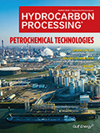Refining
PBF restarts some units at Martinez refinery after February fire; fire-damaged units remain shut
PBF Energy is restarting several refinery process units at the Martinez facility that were shut after a fire broke out in February. The process will take approximately two weeks
Japan to curb gasoline prices from June to cushion U.S. tariff blow
Japan's ruling coalition agreed to curb gasoline prices to help cushion households against wider economic pain stemming from U.S. tariffs
Oil, gas and refined product imports exempted from Trump’s sweeping tariffs
The exemption will come as a relief to the U.S. oil industry, which had expressed concerns that new levies could disrupt flows and raise costs on everything from Canadian crude oil serving Midwest refineries to European cargoes of gasoline and diesel to the eastern seaboard.
Reliance: India's gasoline demand to peak by 2035, diesel by 2041
India's gasoline demand is expected to peak by 2035, and gasoil (diesel) consumption by 2041 or beyond as motorists shift to cleaner fuels, an executive at Reliance Industries said.
Colombia's Ecopetrol to invest up to $700 MM in SAF production plant
Colombia's state-run energy company Ecopetrol plans to invest up to $700 MM to build a plant at the Barrancabermeja refinery to produce sustainable aviation fuel
Ergon to invest $400 MM to expand gasoline production at Vicksburg refinery (U.S.)
Ergon Refining Inc. has announced plans to invest $400 MM to expand processing capabilities at our Vicksburg, Mississippi, refinery to include gasoline production, which is expected to come online during the first quarter of 2027.
DB Schenker to use Neste's renewable diesel to decarbonize logistics in Asia
Neste and DB Schenker, one of the world’s leading logistics service providers, have collaborated to work towards expanding DB Schenker’s adoption of Neste MY Renewable Diesel in Asia-Pacific. This partnership underscores the shared commitment of both companies to progress towards lower-emission logistics.
U.S. EPA's upcoming proposal on biofuel blending mandates to cover two years
The U.S. Environmental Protection Agency plans to release a proposal on biofuel blending mandates that covers two years worth of mandates, instead of a proposal that covers three years
Blue Tide, Shell Lubricants complete re-refining facility to develop high-performance lubricants
The fully operational Baytown Facility features one of the largest hydrotreaters in the re-refining industry, enabling Blue Tide to produce and sell high-quality Group II+ base oils.
Optimize sulfur recovery: Sub-dewpoint sulfur recovery with interstage membrane
The author’s company’s new sub-dewpoint sulfur recovery with interstage membrane (SSRIM) technology is a breakthrough for the sulfur recovery industry, as it is the first technology capable of achieving an overall recovery efficiency of > 99.9% without requiring a tail gas treating unit. This article discusses the basic SSRIM configuration and its advantages when compared to a traditional Claus/TGT configuration.

- China's Wanhua Chemical starts operation at new east China cracker 4/4
- Brookfield Infrastructure announces the acquisition of Colonial Enterprises for $9 B 4/4
- PBF restarts some units at Martinez refinery after February fire; fire-damaged units remain shut 4/4
- Japan to curb gasoline prices from June to cushion U.S. tariff blow 4/4
- Evonik presents innovative "Debonding on Demand" concept for more sustainable bonding 4/3
- Oil, gas and refined product imports exempted from Trump’s sweeping tariffs 4/3




